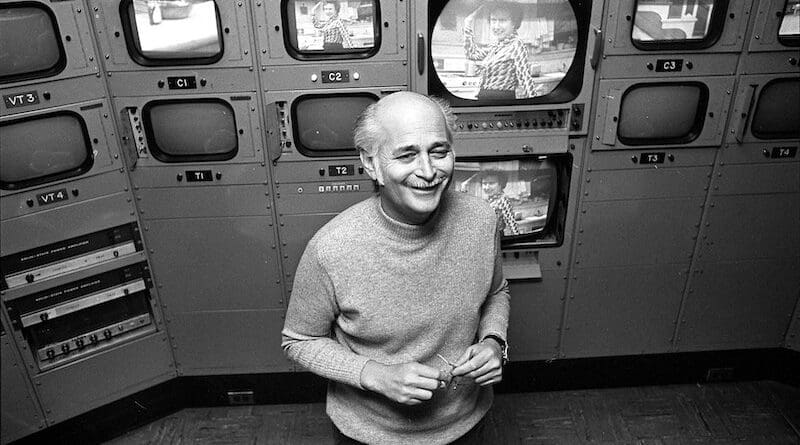I Still Believe In Norman Lear’s America – OpEd
Today I’m grieving the loss of my friend Norman Lear.
Like millions of other TV viewers, I watched the Emmy Awards on January 15. The show honored Norman, who died late last year, as the Hollywood legend that he was. He was also the most deeply principled and decent human I ever met.
Ours was an “odd couple” friendship: a Jewish man in his 102nd year and a Black millennial. We came together through the organization Norman founded 40 years ago, People For the American Way, which I now lead.
Putting his career on hold to start a social justice nonprofit was as unconventional for a major Hollywood player then as it would be now. But Norman did it because his vision of America was under assault by a surging far-right wing.
Norman’s America is a place where a child of the Depression — whose father went to prison and who saw the worst of humanity while fighting Nazis in World War II — can hang onto a boundless optimism. Norman always had faith in people to grow and change.
Norman’s America is a place where our differences are interesting, but not as important as our common humanity. I remember how he believed that differences are fair game for debate — and definitely for humor. But they’re less important than what we share.
Norman’s America is about forward motion — he was known for saying of a project or a phase of life, “this is over, what’s next?” His America is a place where the promise of the next generation is nurtured by the ones before it — where the experience of elders isn’t jealously guarded but generously shared.
Norman’s America is a place where patriotism isn’t a word we shy away from because it’s been hijacked by authoritarians. “I am a patriot,” he wrote on his 99th birthday, “and I will not surrender that word to those who play to our worst impulses rather than our highest ideals.”
He unabashedly named our organization after the “American Way,” because it drove home his belief that our multiracial, multigenerational, multifaith progressive values are the product of American history and the hope for its future.
To those who know of Norman only through his TV shows, his vision of America as a place where people ultimately will band together to do the right thing still comes through. Even in the 1970s, the most cynical of decades, Norman’s ethos was anti-cynicism. If his most famous curmudgeon, Archie Bunker, began an episode with an especially wrongheaded conviction, its grip was usually loosened by show’s end. The shows are good-hearted, not mean-spirited, even when tackling serious social problems.
This was the man himself. Before Norman passed, we worked together on an op-ed that started with the question: “What do a Jewish centenarian and Black millennial have in common?” We knew that one of those things was the fact that some people in our country didn’t see us as “true” Americans. Norman reinforced my faith in what was more important: love of country and gratitude for opportunities to make a difference.
Many feelings are familiar in grief: sorrow, and sympathy for family. I also feel something a little more unusual. When a young person passes, we feel outrage at the loss of their potential. It’s less common to say that about a centenarian, but with Norman it’s true. He still had so many irons in the fire, so much potential.
It would have been put to good use against challenges we have today: increasing political division, rising authoritarianism, religious bigotry. It’s on all of us who loved this man and his vision of America to take up the mantle now.
Yes, I still believe in Norman Lear’s America.
This op-ed was distributed by OtherWords.org.

